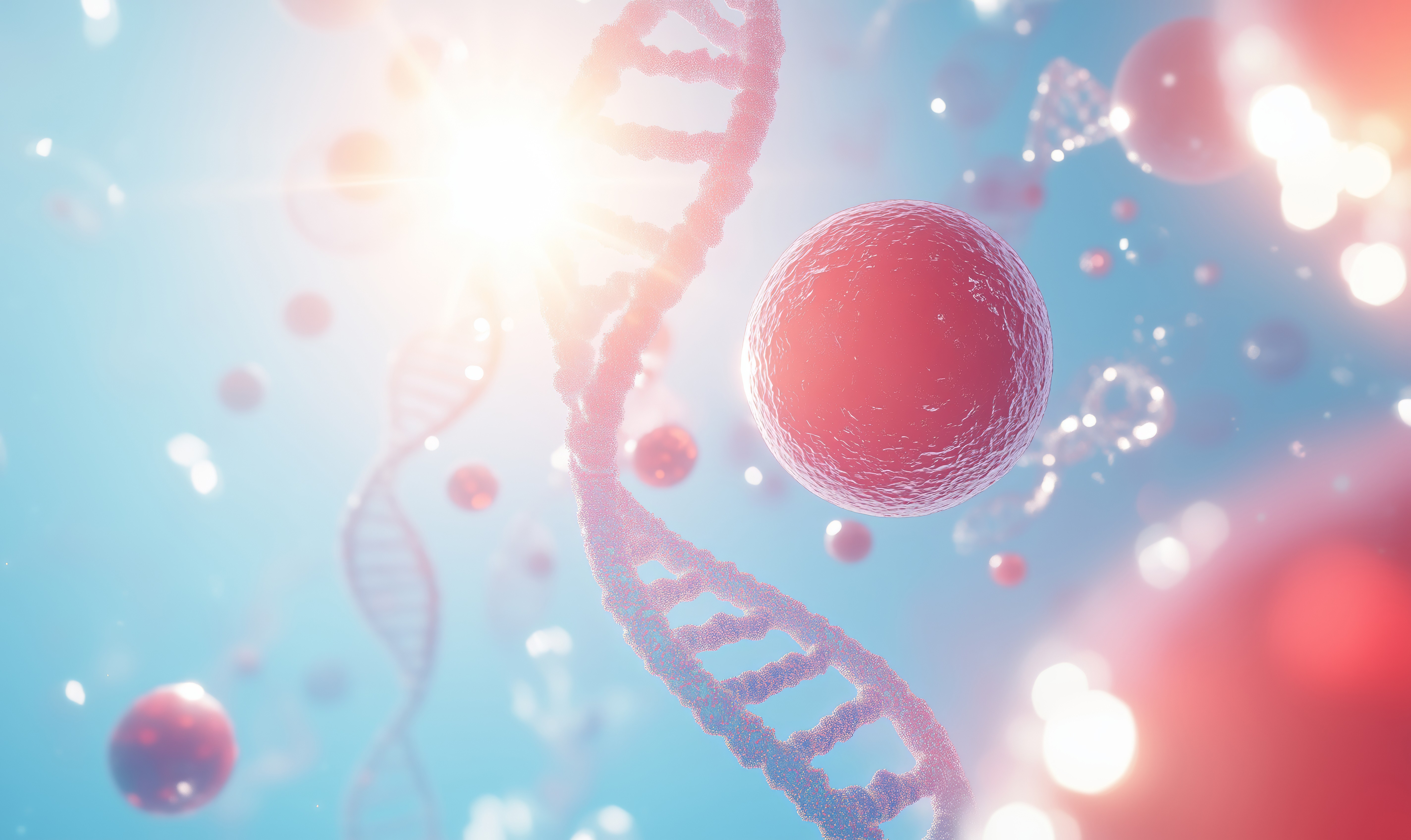Exosomes And Regenerative Medicine
Exosomes and Regenerative Medicine: A Powerful Tool for Your Health
Have you been hearing about exosomes lately? They’re being touted for their potential to:
Improving skin health by supporting new collagen and elastin growth
Support hair regrowth
Helping with recovery from injuries, including joint, muscle, and tendon damage
The good news is that there’s scientific backing for many of these claims. But to understand why, it helps to start with what exosomes actually are and how they work.
What are Exosomes?
Each cell in your body can “talk” to other cells—whether they’re right next door or far across the body. Think of this like modern communication. Just as we can text, call, or send emails, cells have many ways to share information, including hormones, proteins, and... exosomes.
So what makes exosomes different? In our analogy, exosomes are like packages that a cell can ship out, not just words. Instead of just “saying” something simple, exosomes can send detailed “care packages” to other cells.
How Do Exosomes Work?
Exosomes are tiny bubbles that bud off from a cell’s outer layer, carrying various materials, like growth factors, proteins, and healing signals, directly to other cells. Because they can deliver multiple instructions at once, exosomes are like a multitool for healing. They don’t just tell cells to “reduce inflammation” or “start repair”; they can deliver all these messages together, leading to a stronger, more complete response in areas like skin, hair, or joints.
Today, we can even grow and collect exosomes in labs, packaging them to target specific areas of the body.
Potential Benefits
Exosomes are being studied for their potential benefits in several areas, including:
Skin rejuvenation: Supporting collagen and elastin production
Hair regrowth: Stimulating hair follicles
Injury recovery: Helping repair joints, muscles, and tendons
General health as they boost the body’s natural healing abilities
Exosomes are also being explored for future disease treatments, with researchers investigating how they could be modified to target specific health issues.
Are Exosomes Safe?
Yes, exosomes have an excellent safety profile. They do not contain DNA and carry a low risk of allergic or immune responses. After administration, mild swelling or discomfort may occur at the site of injection, similar to how you’d feel after a flu shot.
Could Exosome Therapy Be Right for You?
Exosome therapy can be a great addition to your health goals, especially if you’re looking for ways to rejuvenate your skin, regrow hair, or help with injury recovery.
To learn more about these and other regenerative medicine options, book a discovery call with Dr. Swenson here.
Already know what you’re looking for? Complete our complimentary medical-grade intake form, and Dr. Swenson will review your information to see if you qualify!
Sources:
Kalluri, R., & LeBleu, V. S. (2020). The biology, function, and biomedical applications of exosomes. Science, 367(6478), eaau6977.
Mendt, M., Rezvani, K., & Shpall, E. (2019). Mesenchymal stem cell-derived exosomes for clinical use. Bone Marrow Transplantation, 54(11), 789–792.
Drago, D., Cossetti, C., & Iraci, N. (2017). The biology of extracellular vesicles: Research approaches and clinical applications. Biochemical Society Transactions, 45(5), 953–960.
Zhang, J., & Li, S. (2021). Exosomes: Potential candidates for diagnosis and therapeutic treatment in regenerative medicine. Biomedicine & Pharmacotherapy, 137, 111490.
Ha, D., Yang, N., & Nadithe, V. (2016). Exosomes as therapeutic drug carriers and delivery vehicles across biological membranes: Current perspectives and future challenges. Acta Pharmaceutica Sinica B, 6(4), 287–296.
Read More Articles
We consider all the drivers of change gives you the components you need to change to create a truly happens.









